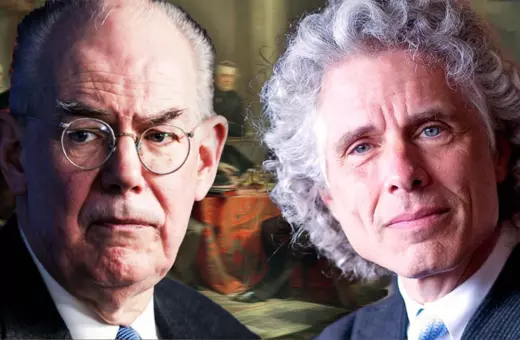The idea that happiness is more than just how we feel at any one moment has been around since Aristotle. Today, psychology draws a distinction between emotional well-being in the present and overall life satisfaction. This distinction, however, is a mistake. Life satisfaction is just a small part of our overall emotional well-being. Happiness is always judged in the present, not from some abstract vantage point that views our life as a whole, argues Steven Campbell-Harris.
Picture two kinds of life.
In one, your day-to-day is mostly stressful and anxiety-provoking, with occasional bursts of joy or pleasure. Nevertheless, when you reflect on your life you find that - despite its difficulties- you are satisfied. You feel you make a difference in the world and judge your life worthwhile.
In the other life, your days are for the most part pleasurable and carefree. You rarely feel sad, uncomfortable, or afraid. But when you take the time to think about your life, you feel strangely empty. You enjoy your life, to be sure, but that doesn’t make you satisfied.
Now take a moment to consider, which of these lives (if you had to choose) would you rather live? And who would you say is the happier of the two?
___
Aristotle wrote approvingly of the proverb ‘call no man happy until he is dead’, while the utilitarian John Stuart Mill later observed ‘ask yourself whether you are happy and you cease to be so.’
___
This thought experiment illustrates a common distinction that psychologists make when thinking about happiness. Happiness, according to them, can be understood as a feeling, or as a more enduring sense of life-satisfaction. These two different ideas about happiness explain the apparently contradictory ways we often talk about it. Sometimes, saying we are happy means making a judgement about our life as a whole; we look to our past, telling a story about how we got here. At other times, saying we are happy expresses how we feel in the moment, fully immersed in an experience, perhaps while enjoying a delicious meal with friends, listening to music, dancing, or laughing.
Philosophers have also tended to think of happiness in opposing ways. Aristotle wrote approvingly of the proverb ‘call no man happy until he is dead’, while the utilitarian John Stuart Mill later observed ‘ask yourself whether you are happy and you cease to be so.’ The former implies that ‘happiness’ is a holistic account of your life; it requires distance and perspective. The latter suggests that happiness is an unreflective immersion in life; if you try to step outside, it loses its fragrant immediacy. The problem, however, is that this distinction that both psychologists and philosophers have emphasized doesn’t hold water.
___
Life satisfaction, properly considered, is not separate from emotional well-being but a part of it.
___





















Join the conversation